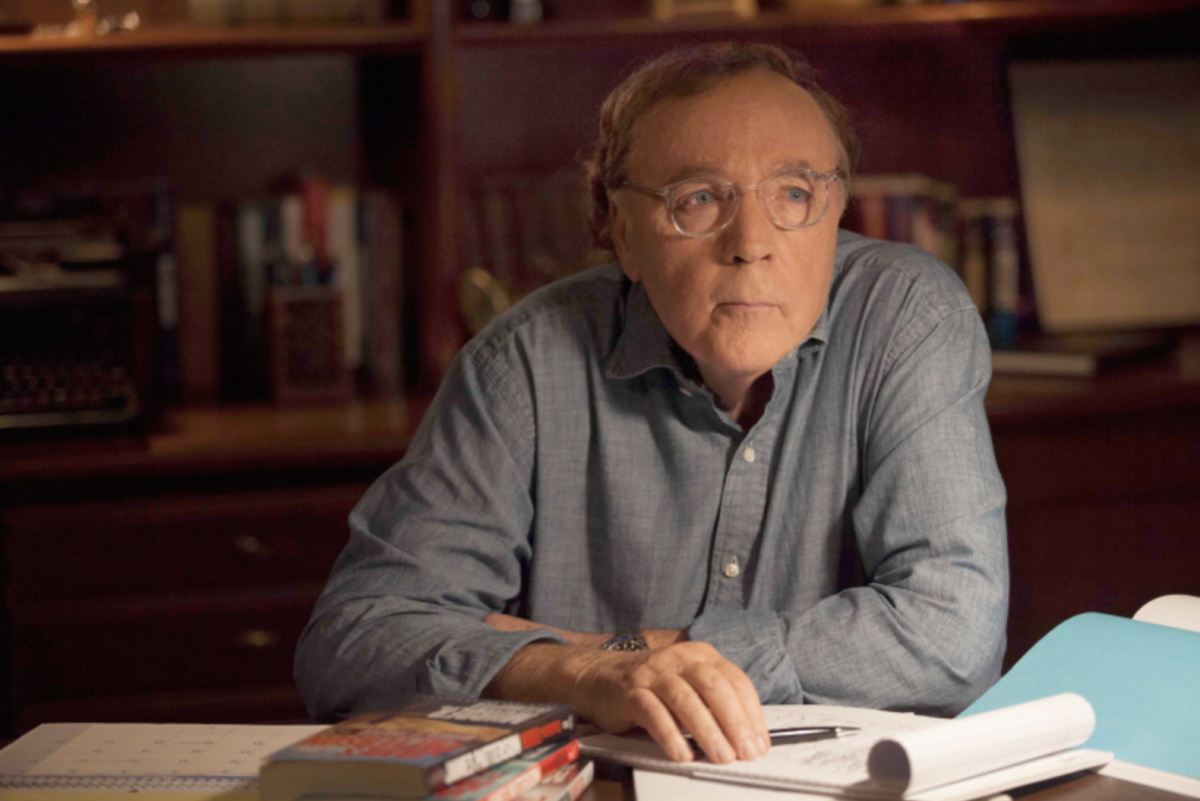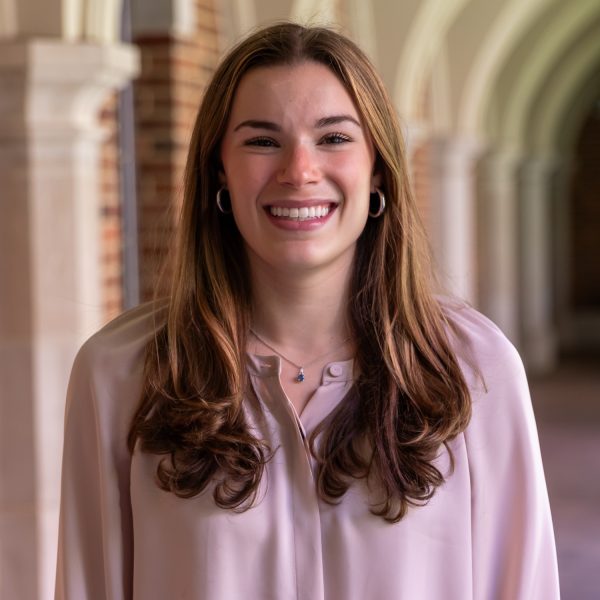Dialogue Vanderbilt hosted bestselling author James Patterson (MA ’70) on April 11 in Langford Auditorium. Moderated by John Seigenthaler, former NBC news anchor and correspondent, the conversation centered around Patterson’s writing career and philanthropic efforts to improve literacy rates and promote reading.
Patterson, an author of over 260 New York Times bestselling books, has long been an advocate for increasing access to literature in schools. In addition to donating more than 1 million books to students, Patterson has been vocal in his support for librarians and independent bookstores, to whom he has donated $7.25 million and $2.1 million, respectively.
Patterson said libraries and bookstores are especially important in the modern age as they serve as crucial sites for kids to explore reading.
“The great thing about books and film is that you learn to recognize, trust and really understand [people different from yourself],” Patterson said. “Right now, there’s no means to do that at such a young age other than books.”
Career journey
Patterson shared that he did not immediately get into writing upon graduating from Vanderbilt with a master’s degree in English in 1970 and instead worked at an advertising firm, which jumpstarted his writing career in unexpected ways.
“When I left Vanderbilt, I realized that I didn’t want to teach English, but I knew I wanted to write,” Patterson said. “I went to New York and started working at J. Walter Thompson because I had to pay the bills. Advertising taught me that there’s an audience, and you need to grab their attention, which is important.”
Seigenthaler then asked Patterson how he transitioned from the advertising field into a career as an author, to which Patterson credited his creative process and natural inclination for writing.
“My strength is that I can tell story after story after story, and my weakness is that I could always dig a little deeper,” Patterson said. “When I started [my first book], I wrote 2,700 pages worth of outlines to be looked over by a small group of people. [Writing] is definitely a process, but it’s worthwhile.”
Personal connection to libraries
Seigenthaler asked Patterson about his motivation behind writing his most recent book, “The Secret Lives of Booksellers and Librarians.” Patterson explained that his mother was a librarian, which gave him a firsthand account of the importance of bolstering interest in reading.
“People have a lot of cliches about libraries and bookstores, and that’s not what it is at all,” Patterson said. “[Librarians] are really good people who want to turn people onto reading, and they work really hard despite not getting paid well for the most part.”
Patterson further defended librarians in regards to literary censorship and the unwarranted criticism they receive from students, parents and educators alike.
“Librarians do really good work [to promote literacy], yet in certain places they get blamed for censorship that they’re not responsible for,” Patterson said.
Censorship and book banning
Patterson then spoke about his personal experiences with book banning and his beliefs regarding literary suppression. Patterson, whose book “Maximum Ride” was banned by a Florida school district in March 2023, said that the government should not interfere with an individual’s right to choose what literature they consume.
“I like to sort of preach to people who are not necessarily on my side and talk about banned books in a language that they understand,” Patterson said. “A lot of these people say they don’t want the government in their face, but they want it in [other] people’s faces [when it comes to banned books].”
Patterson clarified that while parents reserve the right to monitor their children’s media intake, the decision to censor certain books should be solely up to the parents.
“I don’t want a stranger coming in [to my house] and telling my family members what they should and shouldn’t read,” Patterson said. “You take care of your house, and I will take care of mine. But don’t be afraid of the library, especially nowadays when kids have phones.”
Promoting literacy
Seigenthaler ended the event with a question to Patterson about his work to promote literacy among children and to encourage a passion for reading. Patterson said literacy not only opens doors for disadvantaged students but also expands their worldview.
“I have done work with the University of Florida, and they have a program with the goal of getting [literacy rates] to be in the low 80% range for young children,” Patterson said. “So, we effectively have a vaccine to encourage kids to stay in school. If 80% of students are ready at a great level, a lot of them will remain great readers and have choices available to them when they get older.”
Patterson added that while it is best to encourage literacy from the youngest age possible, kids can become proficient readers at any age if given the right books.
“I’m of the opinion that if you can grab [kids’ attention] for a second, then you can get them interested in reading,” Patterson said. “With little kids, you want to give them books and stories where they’re going to say, ‘give me another book.’ And that can be done if you’re giving kids the right books.”













